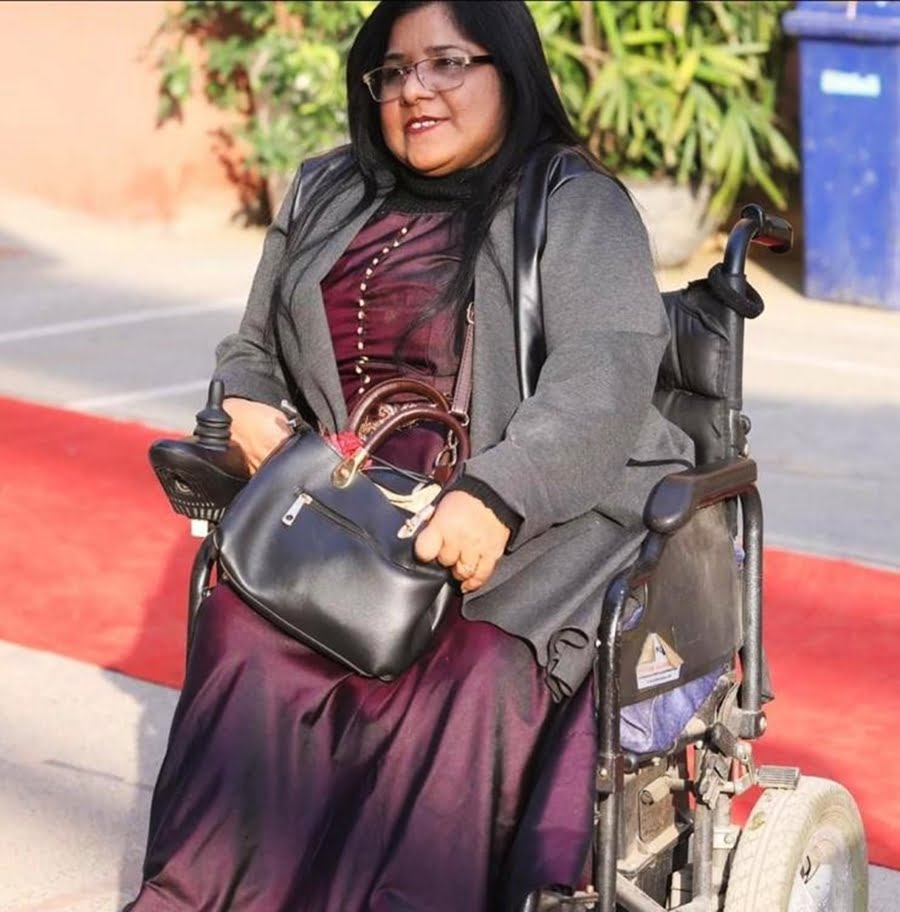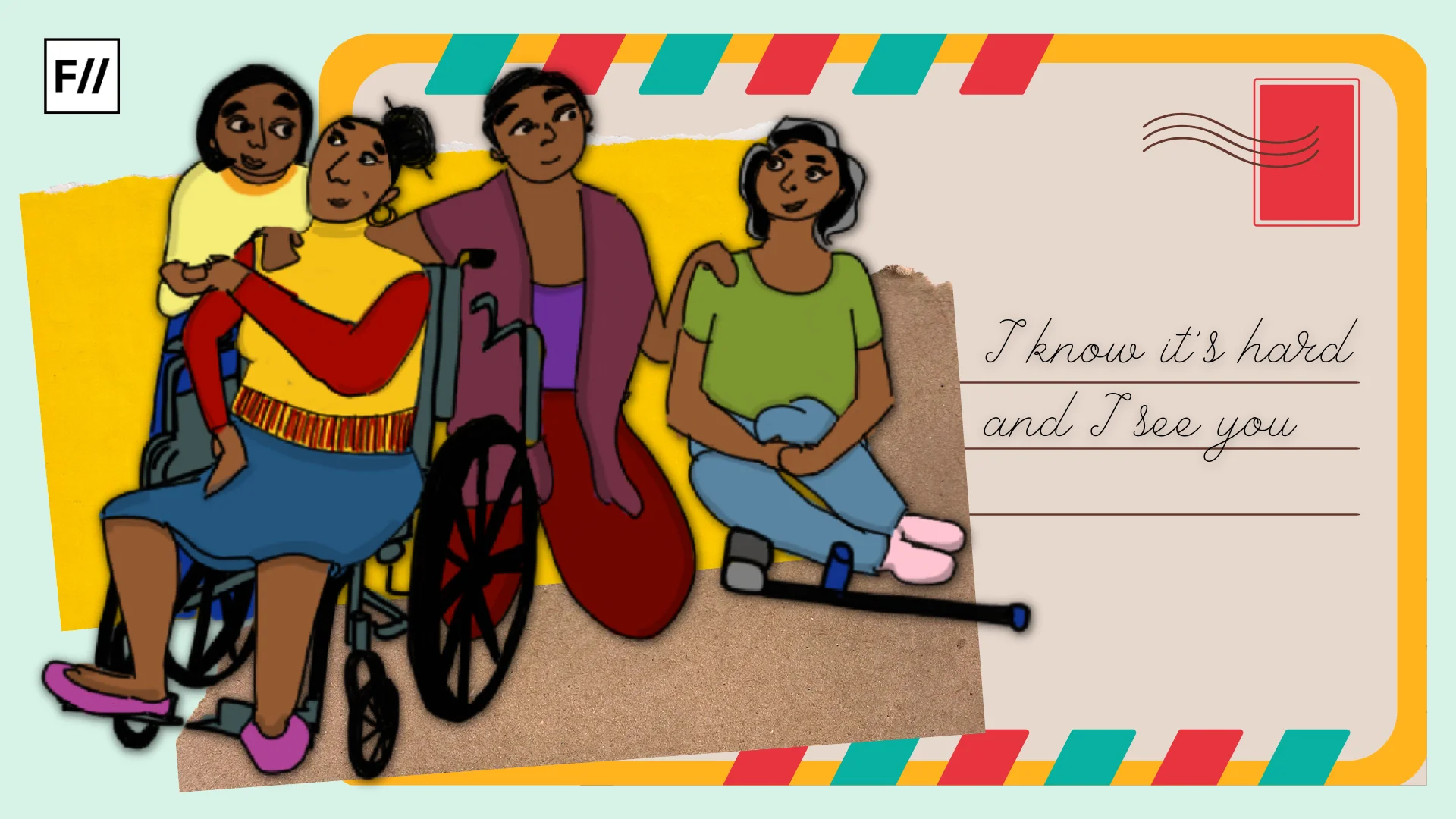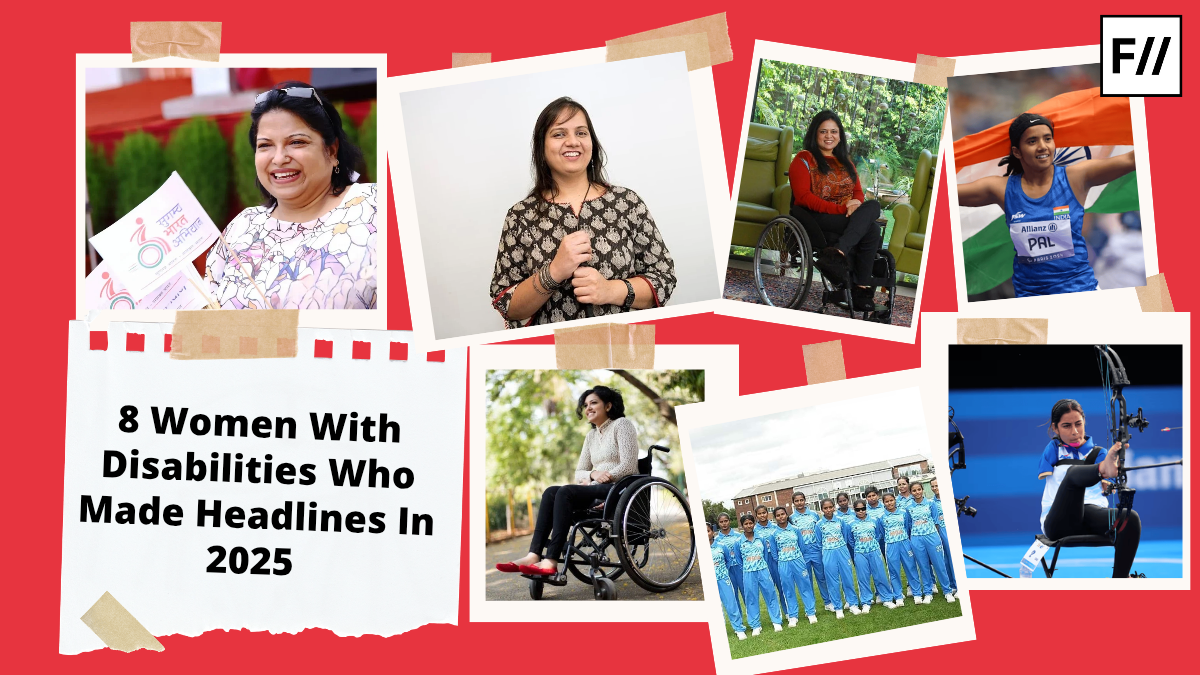Meenu Arora is a disability rights activist and the founder of Yes! We Can, an organisation focused on working for the benefit of people with disabilities and their independent living. Her organisation emphasises on increased visibility of people with disability and in creating an inclusive day-to-day environment for everyone.
At Yes! We Can, Meenu Arora attempts to conduct multiple social events, celebrations and gatherings in an attempt to bridge the gap between the temporarily abled and the people with disabilities.
Oshin: How do you describe the experience of being locked down in your house now during the pandemic?
Meenu Arora: The experience of lockdown is not new. As a disabled person, I have stayed at home for long periods earlier too. Many times when I didn’t have access to my wheelchair or my wheelchair would be broken. To depend on a manual wheelchair meant that someone had to be with me to push my wheelchair. Considering how our public spaces and public transport such as autos and taxis are such that they do not allow me to carry my wheelchair around, I was homebound. So although the lockdown has been a part of my life in that sense, this time it has become a bit too much.
I used to feel free with the motorized wheelchair. It was with a lot of struggle that I got this independence to travel anywhere and anytime I wanted. I was happy that I could finally help my family members by going and buying some stuff from the market. I used to prefer usually doing the work outside home because I was not able to do the household work easily. I used to also help my friends and attend all meetings.
I used to feel free with the motorized wheelchair. It was with a lot of struggle that I got this independence to travel anywhere and anytime I wanted. Now, it actually feels like somebody has tied my wings and kept me in the cage, says Meenu Arora.
So, I never thought that I will be back in that situation where I will be locked down at home, yet again. Now, it actually feels like somebody has tied my wings and kept me in the cage. Think about it, I was finally free and independent. I used to think that now nobody can stop me, but I am again stuck in the same situation.
Oshin: What are the main challenges you faced during this period of lockdown?
Meenu Arora: I and my husband, Samuel Mani, are wheelchair-bound, and we need support. Additionally, at my home, my mother-in-law is bed-bound and my father-in-law is very aged so he also can’t help much. We need a house-help for everything. We had two house-helps, one would come in morning and the other at night. Now, with this lockdown, the biggest challenge for us has been our accessibility to the house-helps.
While we wondered how our helpers would travel to reach us, I was told that if I showed my disability I-card, the house-helps could reach us but given how the public transport was closed, in addition to our fear of contracting the virus from people coming from outside, it became a tricky situation to be in.
Besides this, we were assured that we would not have to hoard and store ration because all of that will be taken care of. We thought the stores will provide ration as they used to and would deliver the same at our home. We were in for a shock when we realised that this will not happen because the shopkeepers understandably did not want to send their helpers to deliver packages.
Even though I could travel in a wheelchair, how was I to carry a sack of wheat or rice? I dialled phones everywhere, one of my lawyer friends asked me to call our MLA, I did that and I called everywhere possible to figure out a way since nobody from my home was in a position to go and collect the ration. Finally it took exhausting rounds of convincing the shopkeepers of our special situation that they agreed to send the ration.
Another challenge I particularly faced was in withdrawing money from the ATM. Because wheelchairs cannot go inside most ATMs, I was unable to go and withdrawing money became a huge challenge for me. In pre-social distancing times, I would have people who would help me withdraw cash–a luxury that I could no longer avail.
Oshin: Are there any aspects of the lockdown that you think benefitted you in an way?
Meenu Arora: The only benefit I got in this situation is how I learnt to live with technology. I realised that from meetings to hanging out with friends, I had the privilege and the ability to access the Internet and apps such as Zoom to make these possible. Even though I’d prefer to meet people, I am grateful that technology has helped mitigate some distance, although virtually.
I had the privilege and the ability to access the Internet and apps such as Zoom to make these possible. Even though I’d prefer to meet people, I am grateful that technology has helped mitigate some distance, although virtually, says Meenu Arora.
Also read: 12 Recommendations For The Inclusion Of Women With Disabilities In Covid-19 Response
Another benefit is that we are able to take up new courses and attend the church gathering online. Earlier, we were not able to do that. I also have found some time for some self-analysing.
These are few of the benefits, but I still feel that there are more struggles than benefits that I personally witnessed during the lockdown.
Oshin: What do you understand by ‘social distancing’ and do you think it will affect your everyday life after the lockdown ends? How and why?
Meenu Arora: Social distancing is maintaining distance from each other but with my situation, I cannot maintain distance because I need help in almost every thing. From combing my hair to having tea, I need help. So the question is how do I practice social distancing? I need to hold hands, or get a hold of things to go about. My work cannot be done without touching. I need help in everything, social distancing is not possible in my case.
Talking about how life will be in a post-pandemic era, there are definitely going to be lots of problems as I can see that the understanding that people have about strict social distancing norms is going to be very problematic for me. When I used to step out, it helped me develop a relationship with people. The social distancing would, undoubtedly, affect me badly, in future I can see a lot of problems, people would be even more hesitant to help me now, considering social distancing norms.

No doubt, some of the questions I stare at now are even related to my survival. Because, how will I survive a situation where I am stuck but will have to look harder for help because people will understandably worry about their lives before helping someone else?
Also read: Accessibility For Women With Disabilities In Times Of COVID-19
Oshin Dhawan is currently pursuing her master’s in development from Azim Premji University and prior to her master’s she was working with organisations in the line of disability rights and inclusion. She also loves to communicate through Indian Sign Language and likes to spread this love for sign language through videos and in whichever other ways possible. She aims for a better and an inclusive world. She can be found on YouTube, Instagram, Facebook and here.
Featured Image Source: IDR




